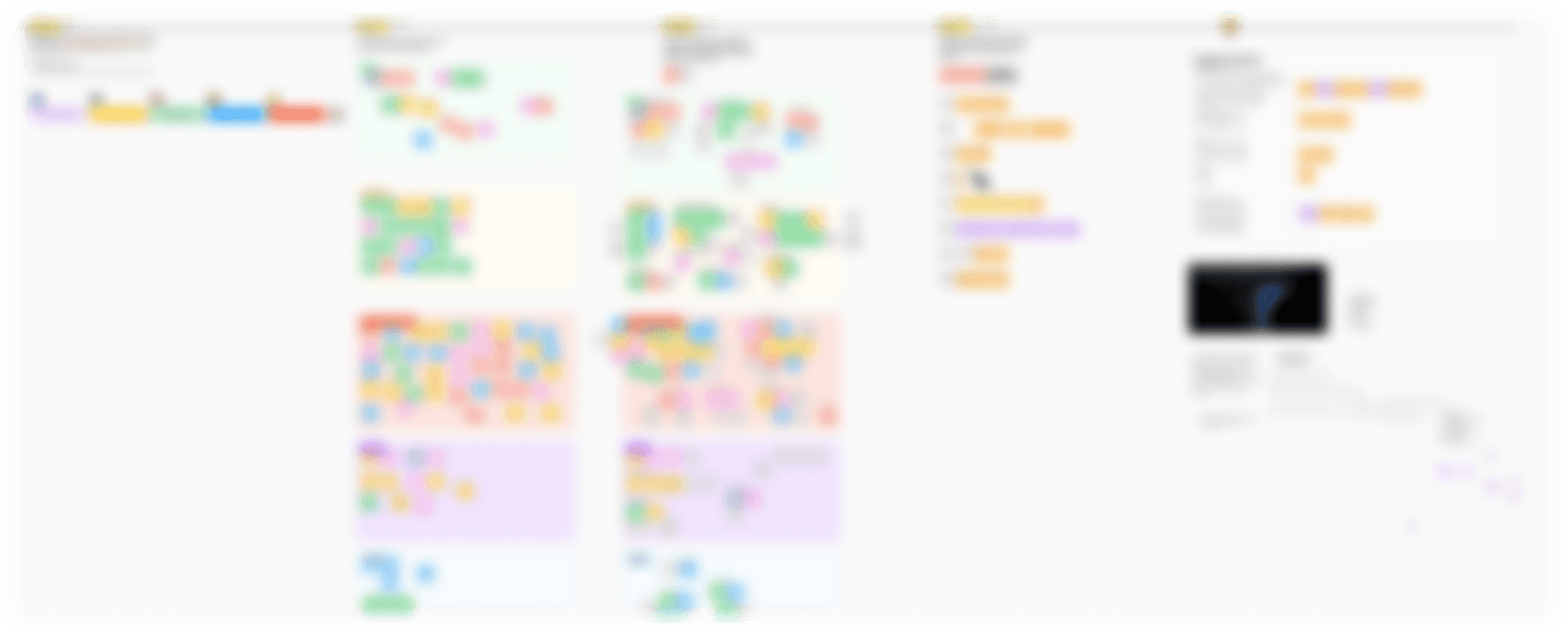Type
Client
Year
Jan 2025
Role
Responsibilities
UX Research
UI Design
Design Systems
Branding

TL;DR
I led the product design efforts, delivering MVPs for both web and mobile while collaborating with a full-stack development team and stakeholders to bring the vision to life.
Nora has raised both pre-seed and seed round funding.
Scroll down to read the summary of the design process
01.
Problem
There’s Nothing to Do… Again?
Discovering local events and unique experiences is often a frustrating, time-consuming process. People want to explore new social activities beyond the usual bars and clubs, but existing platforms fail to curate relevant, interesting events tailored to local communities.
For users, finding intimate, niche events that match their interests and schedules can feel like an endless search across social media, event websites, and word of mouth. Meanwhile, event hosts and small businesses struggle to promote their gatherings to the right audience without relying solely on expensive marketing or crowded platforms like Eventbrite.
People in new cities need a way to discover unique local events and social experiences beyond the typical nightlife and tourist activities

02.
Approach
& Process
To ensure the product addressed real user needs, we focused heavily on user research, competitive analysis, and iterative brainstorming sessions. Our goal was to validate the concept and refine the platform’s core functionality through continuous feedback from potential users and event hosts.
Brainstorming & Workshops
The process kicked off with collaborative brainstorming sessions in FigJam with the client. We explored what "local events" meant for different user groups, ideating features like curated maps, social profiles, and group connections. These workshops helped us define the platform’s core offering:
A discovery tool for users to find unique events.
A management tool for businesses to promote and host events effectively.
User Research
We conducted interviews with two key groups:
01.
Post-Grads & Young Professionals:
Transitioning from socially rich environments (college) to isolated, repetitive routines.
Struggle to find niche, intimate events that aren’t tied to bars or dating apps.
02.
Local Businesses & Event Organizers:
Struggle to promote events beyond social media.
Desire for reliable tools to manage ticketing, attendees, and collaborations.
Whiteboard Brainstorming (Blurred due to NDA)
Competitive Analysis
01.
Meetup: Overcrowded, outdated UI, lacks personalization and social integration.
02.
Eventbrite: Transactional, focused on ticketing, not community-building or discovery.
Key Insights
01.
Users crave intimate, unique local events that go beyond traditional nightlife.
02.
Event organizers need better promotional tools to connect with the right audience.
03.
There is a lack of trust and transparency between attendees and event hosts.
04.
Current platforms feel impersonal and transactional, missing the community aspect that users value.
How might we
How might we help people discover and attend unique, local events while providing organizers with the tools to promote and manage their experiences effectively?
03.
Development
Due to an NDA, I can't share specific details about the development process. However, I can speak to the numerous iterations we went through before landing on the final design. Each phase involved testing and feedback, ensuring the user experience was seamless and the design aligned with our evolving brand vision. These iterative changes helped refine the product and ensure it met both user needs and technical requirements from our development team.
Design Explorations (Blurred due to NDA)
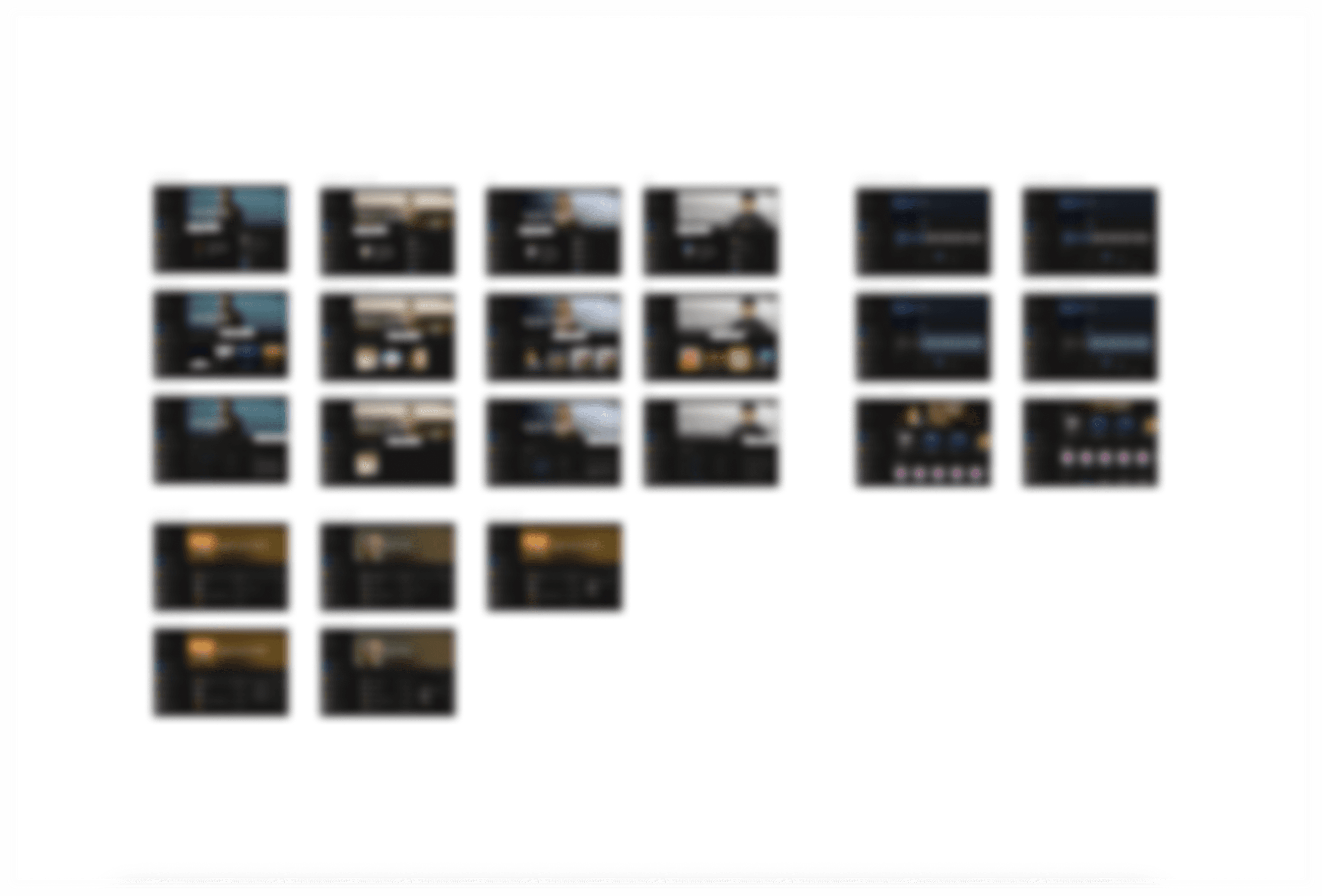
Designing for both Web and Mobile
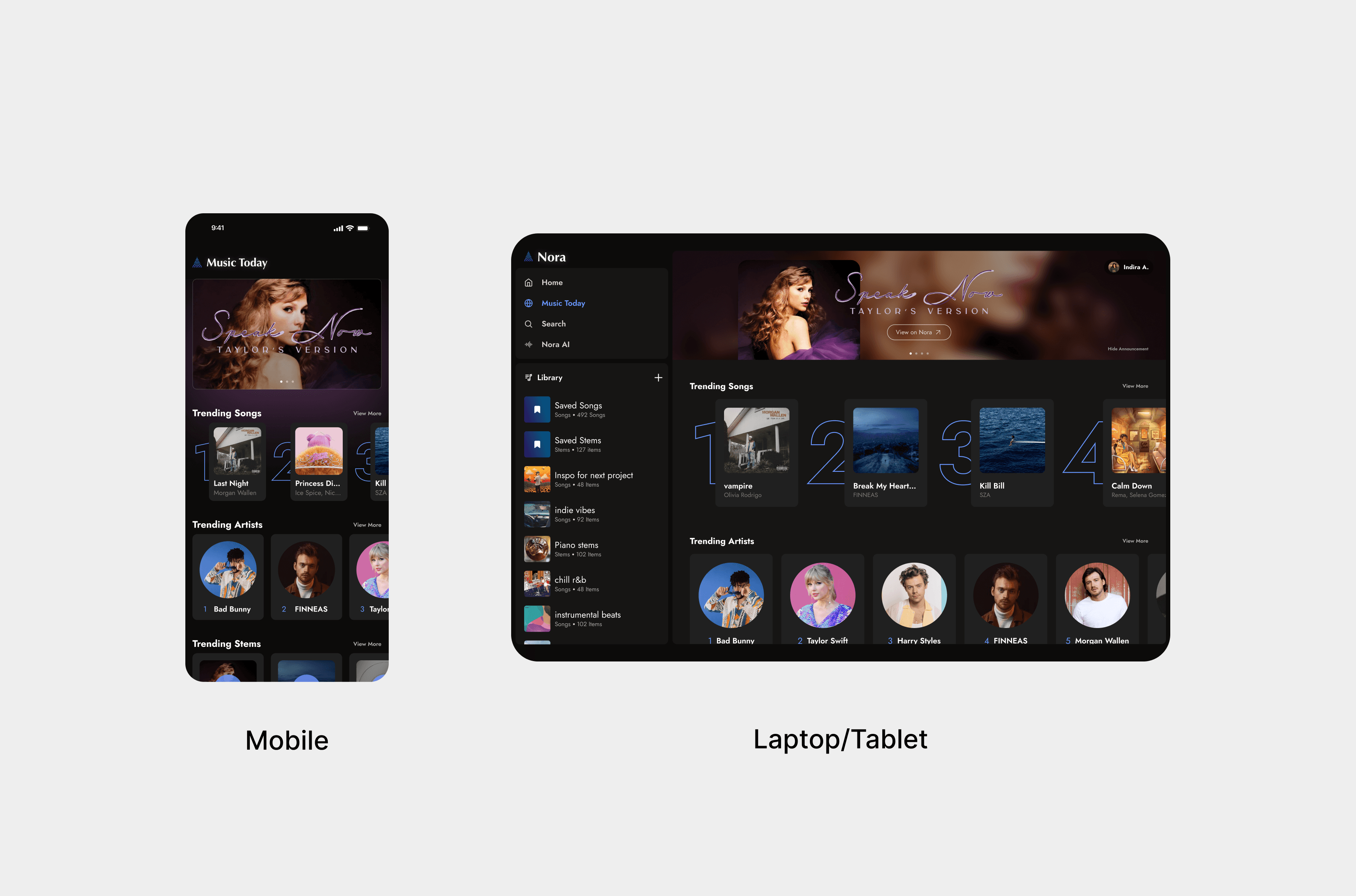
Onboarding for Web and Mobile
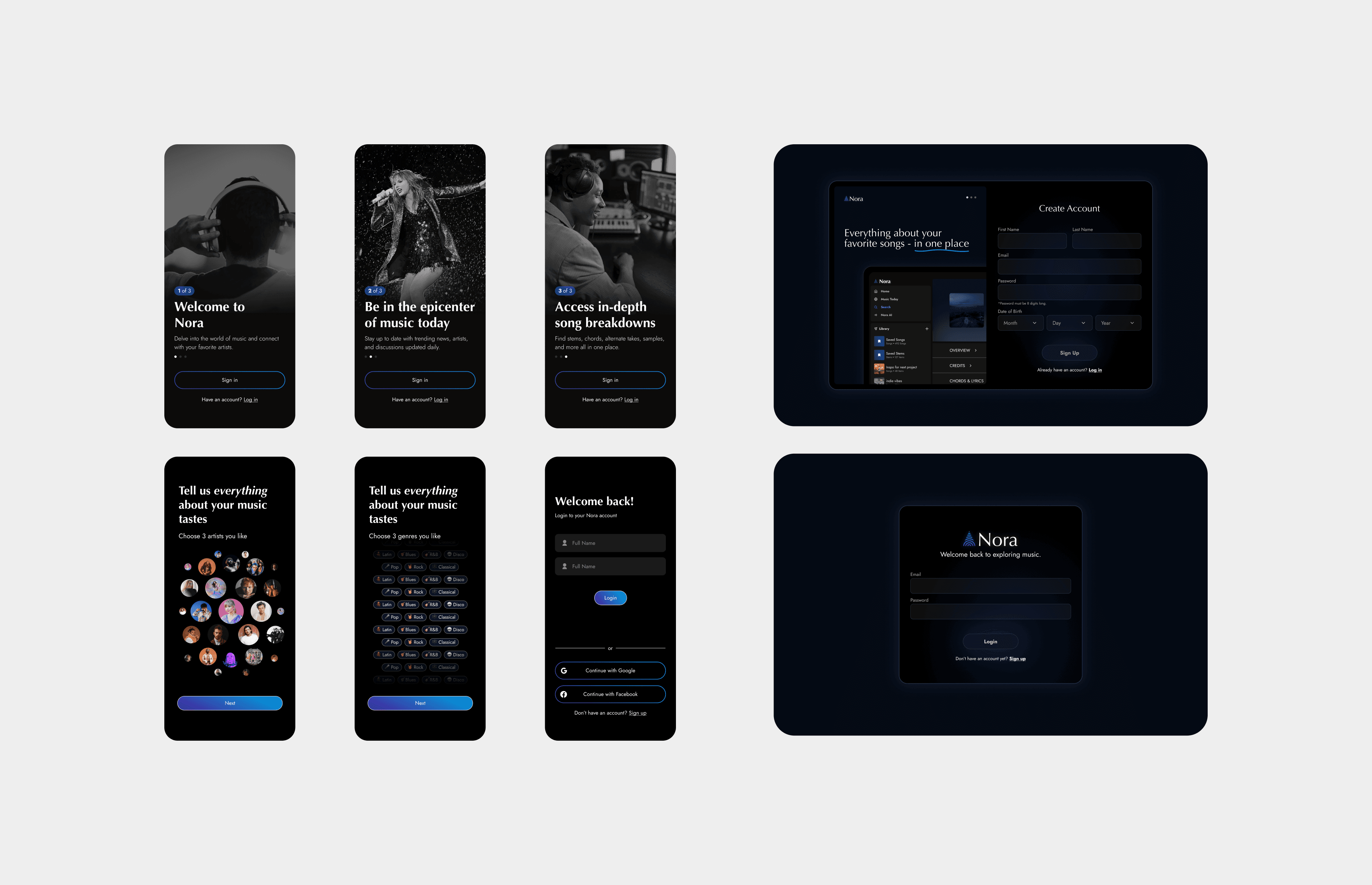
04.
Solution
Nora's final design provides listeners with
01.
Song Insights
Nora provides detailed breakdowns of song structures, chord progressions, key signatures, and tempos, helping musicians analyze and understand the composition of tracks.
02.
Stems & Samples
Access to isolated stems and high-quality samples allows musicians to remix, learn, and experiment with different song elements for creative projects.
03.
Exclusive Content
Nora offers exclusive content, such as behind-the-scenes footage and interviews with artists, giving users a closer look into the creative process and industry insights.
Due to NDA restrictions, specifics of the design and development process are confidential. However, my contributions included wireframing, prototyping, and delivering final UI designs for both web and mobile platforms.
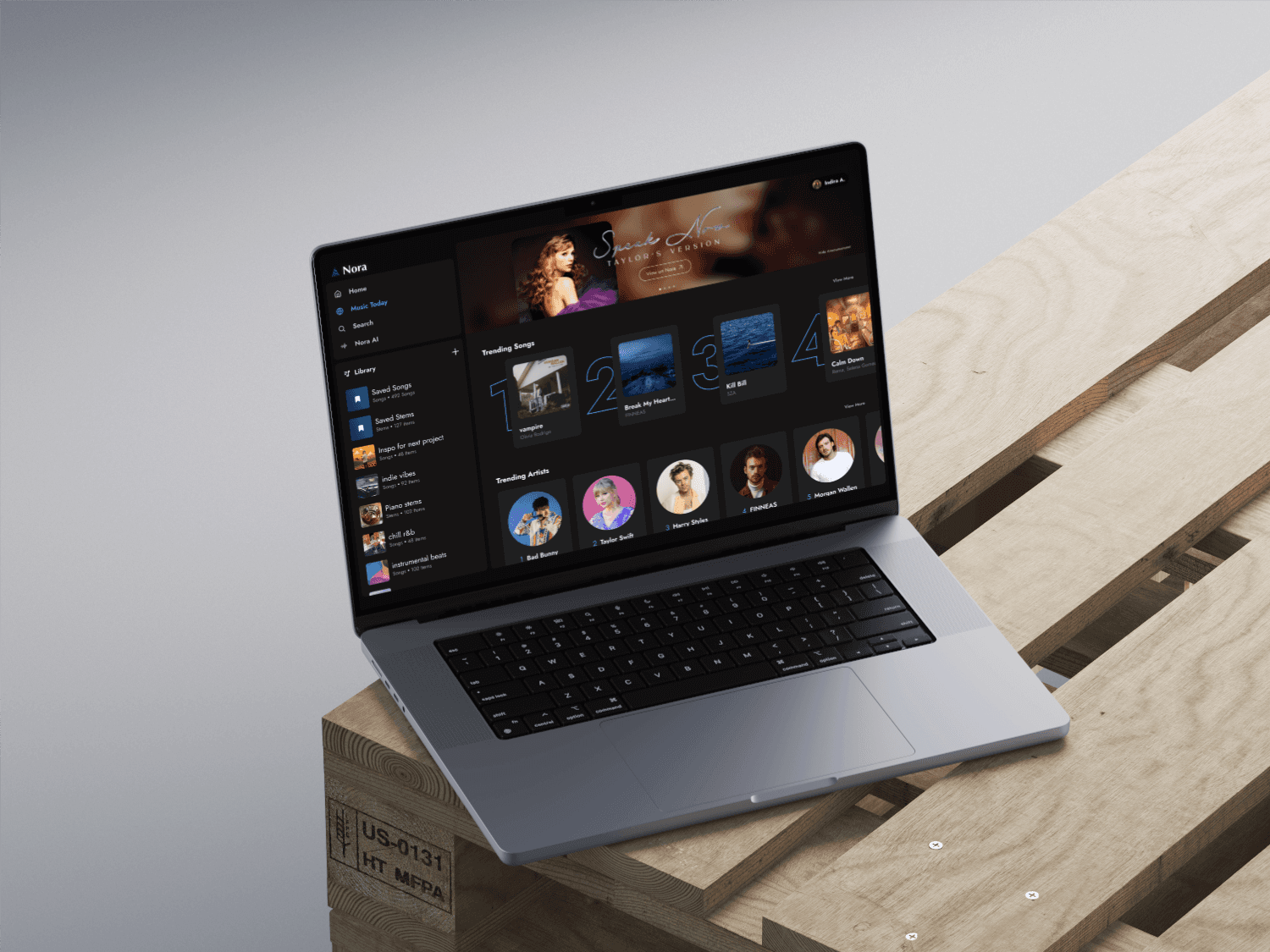
05.
Design
System
The design systems for Nora were originally developed by my co-designer, and were carefully modified over time as our design identity evolved. Working together, we ensured the systems remained flexible and adaptable, allowing for consistent updates while staying true to the growing vision of the brand.
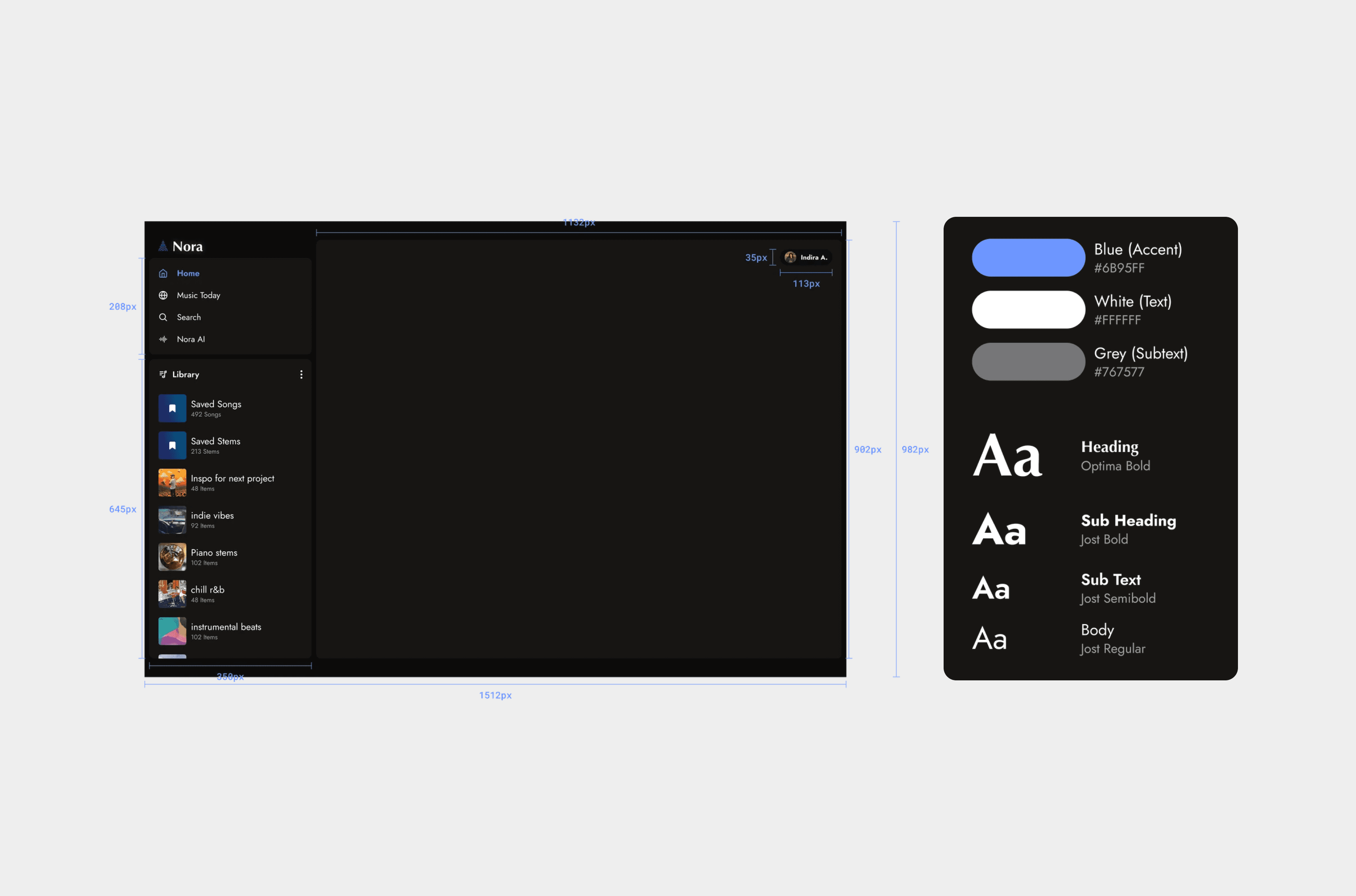
06.
Takeaways
Designing in teams can be very rewarding
I was the second product designer at Nora, which meant I had to learn how to go through the design process with another person. Since this was my first time working closely alongside another designer, I had to learn how to manage multiple people working on one product. I realized that getting to collaborate closely with someone within your division, versus just collaborating with people in outside divisions such as developers, can be a very rewarding experience. You get to bounce ideas off of each other and play to each others strengths.
Communication can make or break the entire process
Working not only with multiple designers but also with multiple people in other divisions, you begin to realize how important it is to communicate the little things. With division specific tasks, things would redundantly get done twice (or even worse, not at all) when there wasn't clear communication within the team. With outside divisions such as developers, small changes had to be communicated in order to keep the same magic from prototype to launch. It was very important to find the balance in communication.
If you have ideas, speak up
I'm a music guy. I produce, I'm in a band, and aside from working on Nora I am also one of Nora's early users. When you understand the product and all of its use cases, you begin to see what it's missing, what could be improved, or what isn't necessary. Whenever I noticed small (or sometimes large) things like this, I always politely brought them up from the perspective of a user. I think having that insight can be super helpful, and although I never tried to make assumptions on the users behalf, I learned it's important to mention those things in order to make a more user-focused product.
*I try my best to keep my case studies concise to respect your time. If you'd like to dive deeper into this project, feel free to reach out—I’d be happy to share more details.



